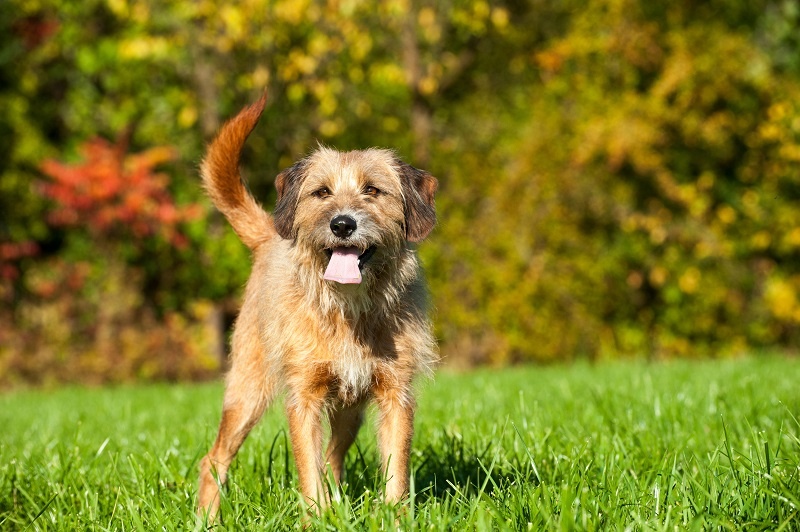Estimated reading time: 5 minutes
One of the few upsides to being in Covid-19 lockdown has been having the time to catch up on some webinars. One that immediately caught my interest was one on Dogs and the Law. I admit it sounds a dry subject, but a good speaker makes all the difference. It is important that dog owners understand the laws around dog ownership in the area where they live. This blog covers a few of the most important laws relating to dogs in England. Laws may vary around the UK and in other countries.
First, and most important, is to understand your responsibilities as a dog owner. Pets have a legal right to live in a suitable environment, eat a suitable diet, exhibit normal behaviour patterns, be housed with, or apart from, other animals, and to be protected from pain, suffering, injury and disease. There may be local by-laws requiring your dog to be kept on a lead in certain areas or excluded altogether. You may be required to pick up your dogs’ faeces and may face fines if caught without a poop bag. Dogs must not be allowed to ‘worry’ (scare, chase, or attack) livestock and can be shot by the farmer if found amongst livestock. Your dog should not be dangerous or cause a nuisance to others. The definition of ‘dangerous’ is broad and includes your dog acting in a way which causes people to believe they may be injured. Your dog may be deemed dangerous if it injures someone by knocking them over or causing them to fall, as well as if they bite. The only time a dog will ‘get away’ with biting someone is if they are unlawfully in your home (but not the garden). Nobody expects a dog to be silent, but nuisance barking is a common cause of disputes between neighbours. Ensure that your dog is trained to cope when left alone or arrange for people to walk him during the day to avoid nuisance barking. You may be found liable if your dog causes an accident or injury, so it is strongly recommended that you have 3rd Party Liability Insurance.
Of particular interest to many people is the introduction of ‘Lucy’s Law’. This came into effect in England on 6th April and means that anyone wanting to get a new puppy or kitten must buy direct from a breeder or adopt from a rescue centre. Dog breeders are required to show puppies interacting with their mothers in their place of birth. Puppies can therefore no longer be sold in pet shops or by puppy dealers. It is hoped that this will make it far more difficult for puppy farmers to operate, though there are fears some will find loopholes to exploit and buyers should remain vigilant. Anyone breeding three or more litters a year, or who runs a dog breeding business needs to be licenced by their local authority. Not all breeders need to be licenced; those who breed only occasional litters or who do not sell puppies for profit may be exempt. Some breeds and types of dog are illegal in the UK; these are Pit Bull Terrier, Japanese Tosa, Dogo Argentino, and Fila Braziliero. Dogs are judged on how they look rather than what their paperwork or any DNA test says they are, but dogs considered to be one of these types can now be exempted from euthanasia provided they are well trained and kept muzzled and on a lead in public.

Another advantage to lockdown is that many pet owners now have the time to catch up on jobs they have been ignoring. Now would be an ideal time to check your contact details are correct on whichever database your dog’s microchip is registered with. It is a legal requirement that the keeper’s information is kept up to date, and failure to do so could result in a large fine. Not to mention that if a dog’s keeper can’t be traced, the dog can be legally rehomed after just 7 days! The breeder must get puppies chipped before sale and must be the first registered keeper. Covid-19 has made getting puppies microchipped more difficult, but most veterinary practices will now offer this service if safe social distancing can be maintained.
Despite the law requiring dogs to be microchipped since 2016 they must also still wear a collar and tag bearing your name and address when out in public. The only exceptions are for working dogs (including police, service, sheep, and gundogs) when they are working. You should check regularly that the tag is still securely attached and legible.
A major downside of lockdown has been the restrictions placed on non-essential travel. Walking your dog once a day from your home is generally accepted to be essential for your dog’s welfare as well as being your daily exercise. Dog walkers have been given advice on how they can walk the dogs of vulnerable people and key workers while keeping the risk of disease transmission to a minimum. However, police forces have differed in their approach to people driving their dogs to areas away from home for a walk. Most now accept that a short drive may be safer than walking from home for some people, but check your local police advice and consider whether driving increases the risk of spreading Covid-19 or needing the emergency services.
Many people think that there is a law banning dogs from shops, cafes, and restaurants, but in fact no such law exists. It is up to a business owner whether they want to allow dogs to join their owners for lunch or on a shopping trip! The only laws are against animals being in areas where food is prepared, handled, or stored. Guide dogs and other registered assistance dogs are allowed into any shop. So perhaps once lockdown is over, look for a local dog friendly café to support with your canine chum.


